PORT-AU-PRINCE — Outside my window, I hear a musical sound. Pa-Ping! Pa-Ping! It stops for a few seconds, then starts again. Ping! Ping! It goes on for half an hour — Pa-ping! Ping-ping-ping! — until finally, I drag myself out onto the morning heat to see if someone left an alarm going somewhere.
No alarm. It’s the sound of a language program being studied by Bianka, one of our teenaged girls. The program is called Duolingo. Every time you answer a question correctly, you get a ding.
Bianka is studying Arabic.
Pa-Ping! Pa-Ping-ping-ping-ping!
She’s getting a lot of questions right.
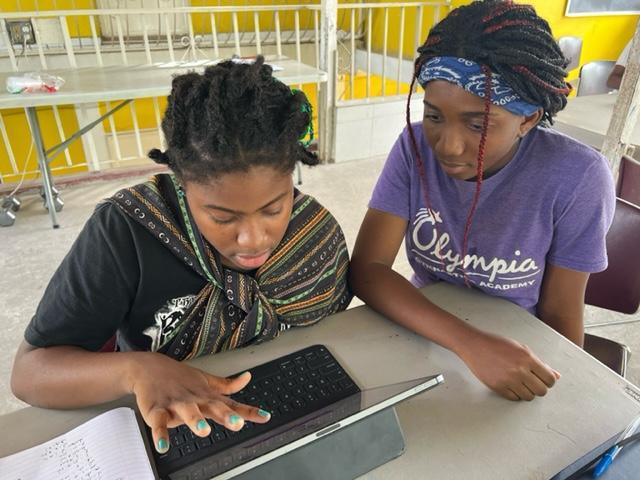
Bianka and Cinlove speaking Arabic |
Some kids collect baseball cards. Some collect friends on Facebook. Our kids collect languages.
They never get tired of them. I suppose it makes sense. From the time they are eight or nine, they are already speaking three tongues — Creole, French and English — so adding another is hardly daunting. The bigger challenge is finding one that’s not taken.
“I can speak Chinese,” Junie-Anna would always tell me. This was when she was 13, 14, 15 (She’s 17 now). She would then rattle off sentences she had learned from the books I would bring her each month. She didn’t have a tutor. She had no one else to speak it with. But she wanted to learn Chinese. When I asked her why she said, “I want to go there one day.”
Maybe she read about it. Maybe she saw a movie. Maybe, because she dreams of being a veterinarian, she liked the pandas.
But she sat for hours and hours with those Chinese books, repeating phrases softly to herself.
And she’s not alone.
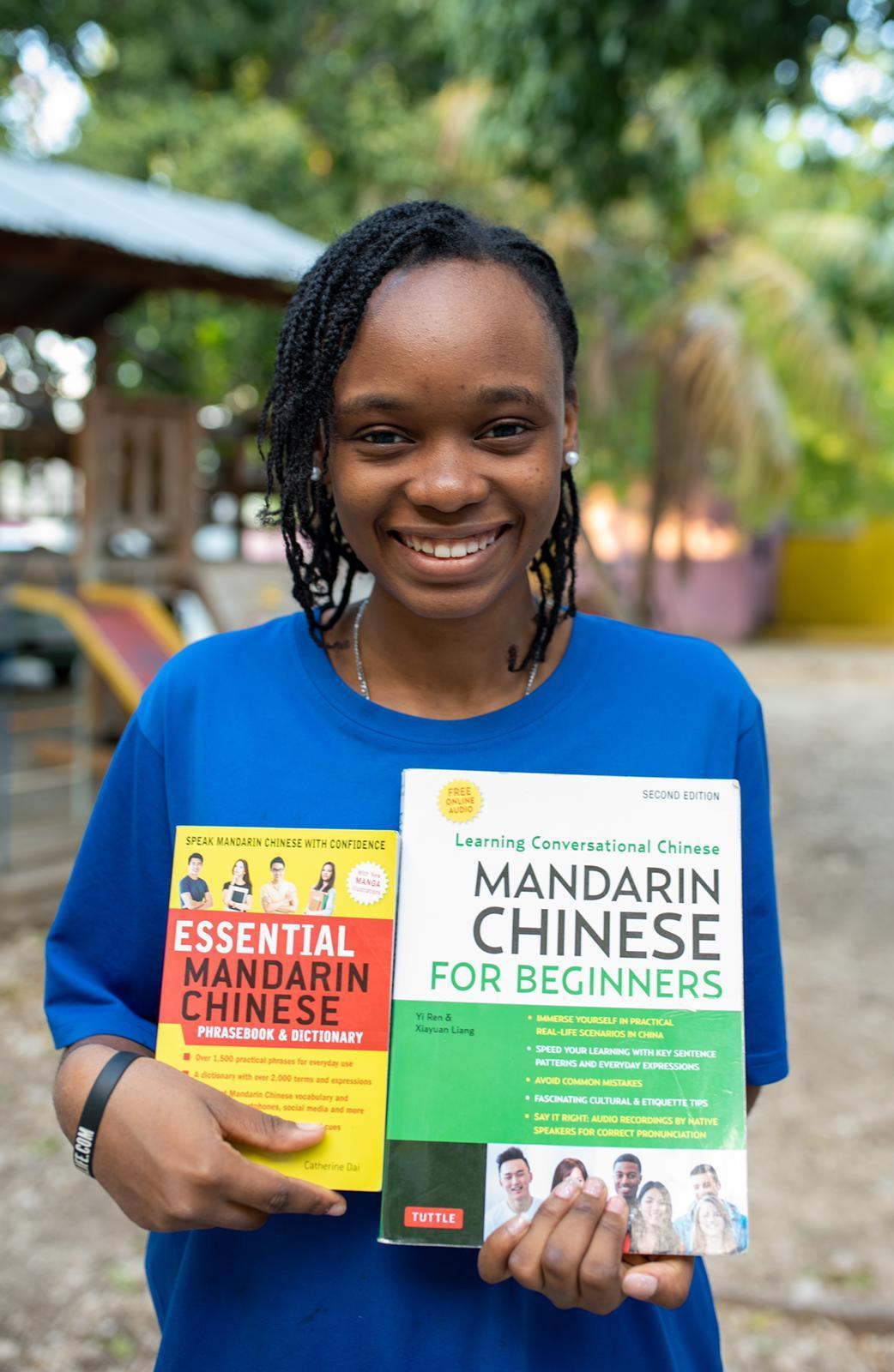
Junie-Anna and her Mandarin study books / Photo credit: Danielle Cutillo Photography |
“¿Cómo estás?” / “Koman ou ye?”
Samanza, our oldest girl, is headed to Hope College in the fall. In the meantime, she studies Hebrew. Why? Who knows? We’ve had Jewish visitors over the years, including several rabbis and a young man who speaks Hebrew in his home. It inspired our kids. Samanza and Junie-Anna quiz themselves on how to say “How are you?” and “What are you studying?” in the original language of the Bible.
It doesn’t stop there. We have a wonderful teacher named Priscilla. She is from Brazil. Not surprisingly, we now have a cadre of young Portuguese speakers.
And since the Dominican Republic is on the other side of this island, Spanish is never far from our kids lips.
“Uno, dos, tres, cuatro…” you’ll hear out little ones rattling off.
Our music instructor, Dennis Tini, makes sure the kids learn songs in different languages. Our boys’ band (who call themselves “The Hermanos Brothers”) has done “Feliz Navidad” and “La Bamba.” Our little kids sing French nursery rhymes.
And of course, between the volunteers from various parts of the world, and our mostly Haitian staff, you’ll hear conversations start in English, continue in Creole and wiggle around in French.
All in all, it’s like living in a language lab, or the lobby of the United Nations.
Collecting languages
Ordinarily, I’d stop with this observation. Our kids like languages. Pretty simple.
But I think it’s bigger than that. I think the willingness to communicate in a second language shows a sensitivity to the rest of the world, who may not speak yours.
In the U.S., we often have the expectation that English will be spoken wherever we go. That’s because, when it comes to North America, it pretty much is. And even when we go to, say, Europe, you can pretty much count on finding English speakers to make things easier.
Haitians don’t have that luxury. They know that Creole doesn’t travel. If they want to, they need to adjust.
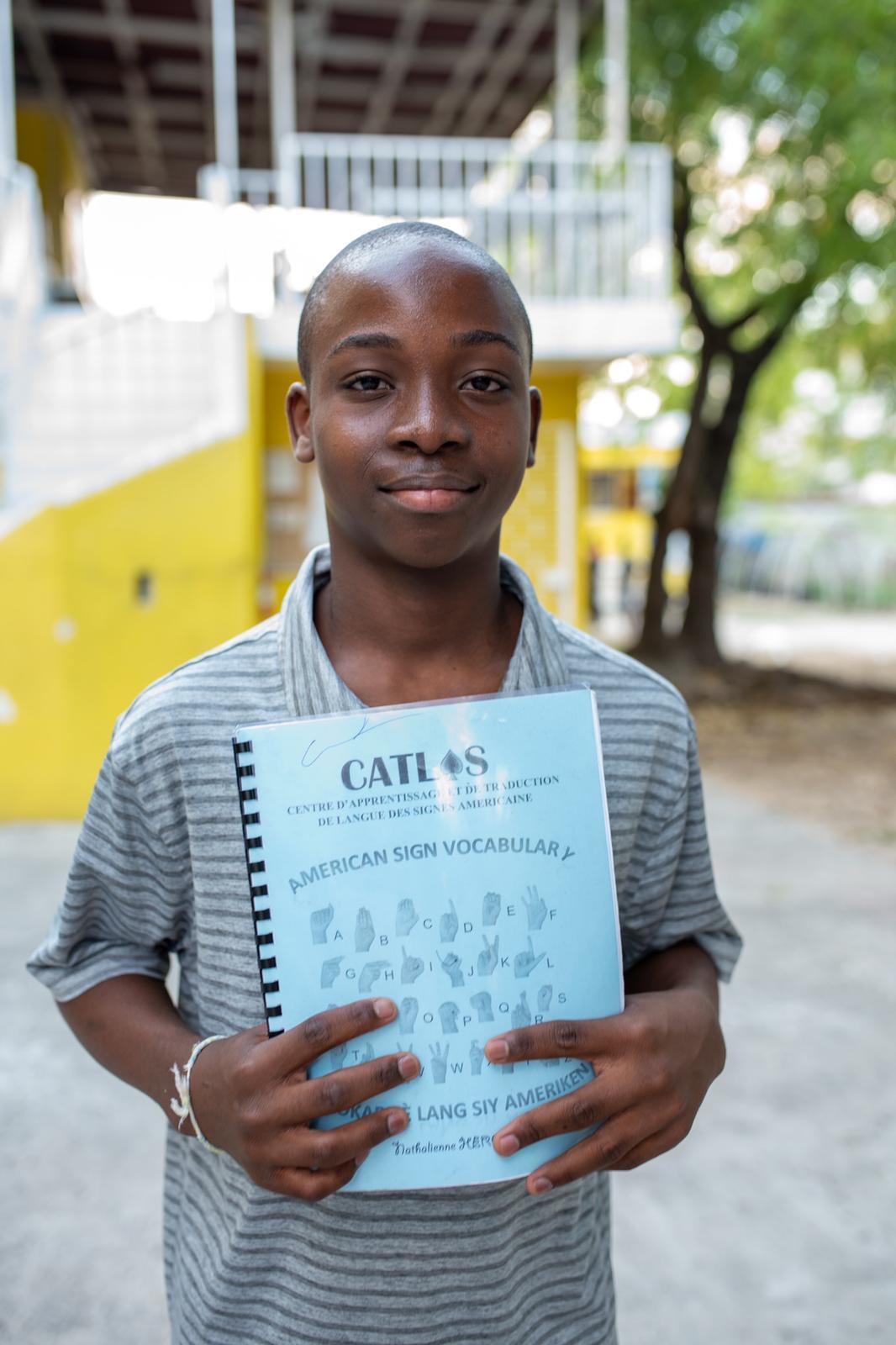
John Carey holds an American Sign Language Workbook / Photo credit: Danielle Cutillo Photography |
So they do — with fervor, with gusto, without complaint about the fairness of having to learn other nation’s tongues while no one is learning theirs. It’s one thing to love your language. It’s another to love them all.
Thus our orphanage is a cacophony of communication, a smorgasbord of syntax, an assembly of articulation, a tonnage of tongues.
And if you gave them time, I bet our kids could translate that sentence. At least five different ways.
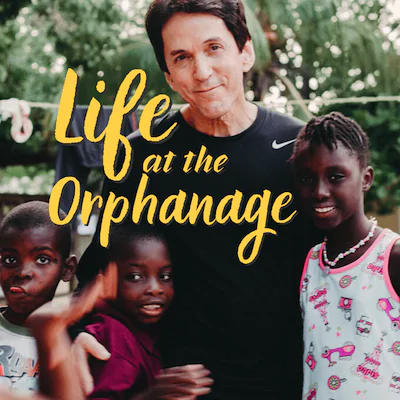
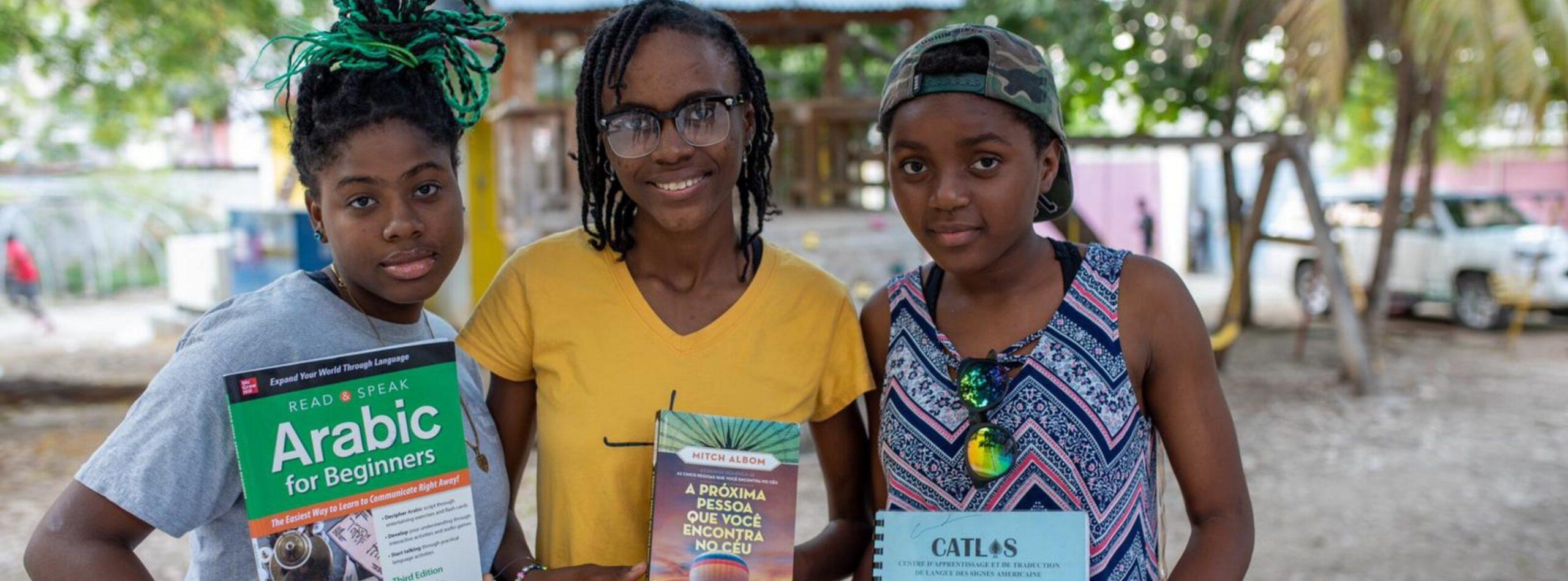
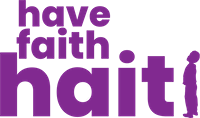
 Join a community of monthly donors
Join a community of monthly donors
0 Comments